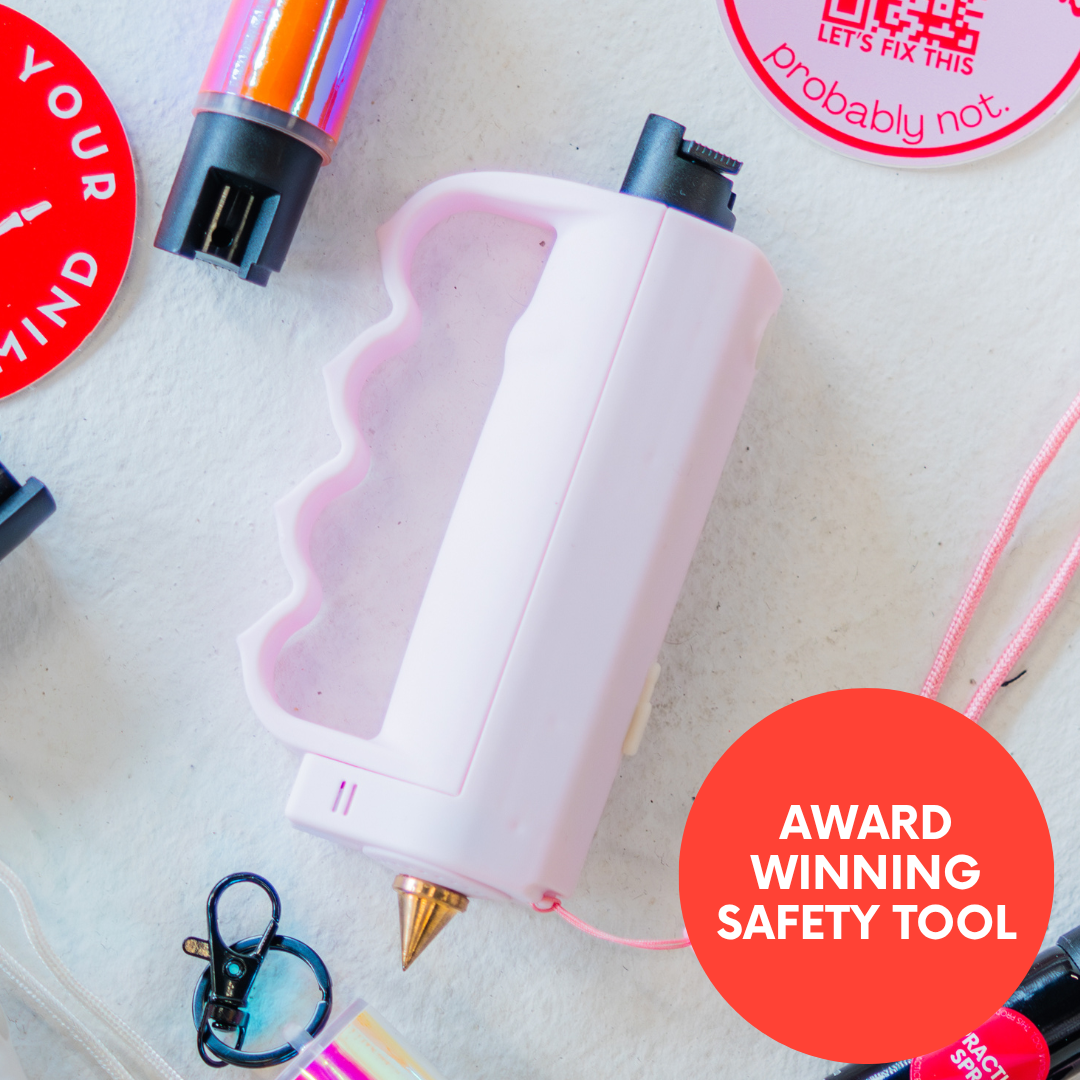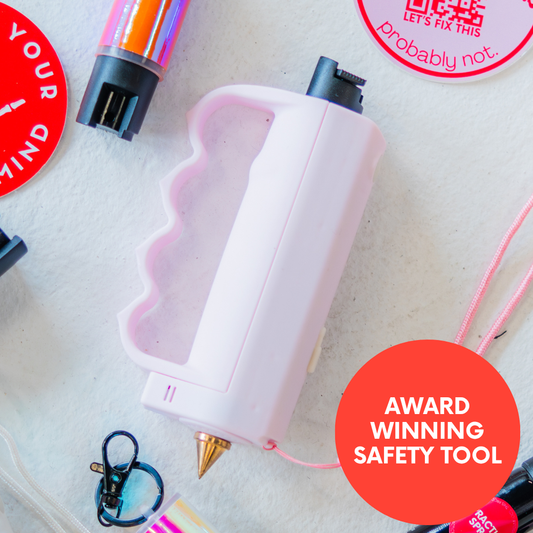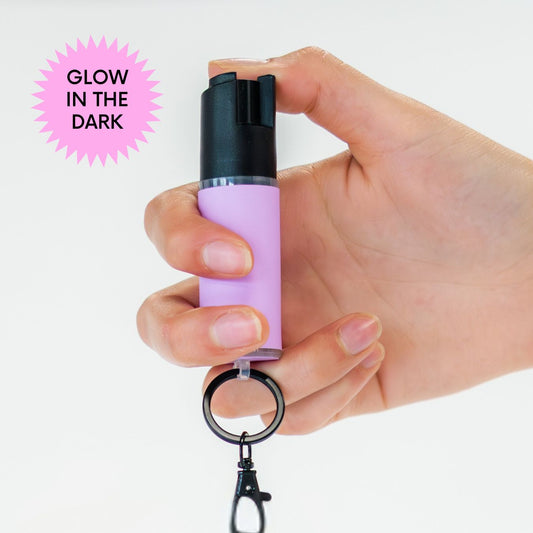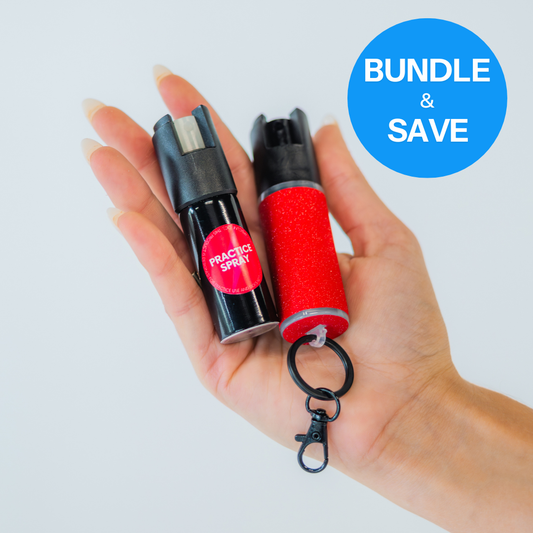Understanding situational awareness is like having a personal safety radar that keeps you tuned in to your surroundings.
It's about being aware of where you are, who's around you, and what could happen.
This doesn't just apply to high-risk situations; it's a daily practice that can help you feel more confident and in control, no matter where you are or what you're doing.
Situational Awareness Safety Tips
At its core, situational awareness is about being observant and understanding the context of your environment. It involves knowing how to recognize potential threats before they turn into real problems. Here's how you can improve your awareness:
- Stay Alert: Keep your head up and your eyes open. Avoid distractions like your phone when walking in public areas.
- Scan Your Surroundings: Make it a habit to look around and identify exits, potential hazards, and people who might be out of place.
- Trust Your Gut: If something feels off, it probably is. Don't ignore that little voice inside that tells you something isn't right.
- Plan Ahead: Before you go somewhere new, research the area. Know the safest routes and keep an eye out for local businesses you can turn to if needed.
- Stay Informed: Keep up with local news and be aware of any events that might affect your safety.
- Learn to Predict Events: By observing patterns in your environment, you can often anticipate actions before they happen.
Tailoring Awareness to Your Environment
Just like you might dress differently for a day at the beach versus a day at the office, situational awareness changes based on where you are. Here's how to adjust:
- At Work: Learn the emergency procedures at your workplace. Take note of who comes and goes, and be aware of any unusual behavior.
- While Traveling: Keep your belongings close and be extra vigilant in airports, train stations, and other transit hubs. Learn about local customs and pay attention to cultural differences.
- In Social Settings: Parties and events can be fun, but they can also be distracting. Keep an eye on your drink, stay with friends, and be aware of the exits.
- In Crowded Places: Keep your belongings secure and maintain personal space when possible. Be aware of the flow of people and don't be afraid to move to a less crowded area if you feel uncomfortable.
- In Social Situations: Keep an eye on your drink, stay with friends, and be cautious when meeting new people.
Remember, your safety is paramount, and being aware of your surroundings is a key part of staying safe. For more tips and tools designed to keep you secure, including stylish pepper spray that fits right into your life, visit livesafely.co.
Technology's Impact on Awareness
While technology offers us countless benefits, it can also affect our situational awareness. On one hand, smartphones and wearable tech can provide us with tools to stay safe, like location sharing or emergency alerts. On the other hand, being absorbed in our devices can make us less aware of our surroundings.
- Use apps that track your location and share it with trusted contacts.
- Set up your device to send emergency SOS messages if you're in danger.
- Keep your phone charged and consider carrying a portable charger.
- Pay attention to distractions - don't use headphones in both ears when you're in new places.
- Look up from your device regularly to scan your environment.
- Use Safety Apps: Apps can alert you to local safety issues or help you quickly contact emergency services. For more information on improving situational awareness through technology, check out our tips and tricks.
- Be Cautious with Headphones: If you're listening to music or a podcast, keep the volume low enough to hear what's happening around you.
By using technology wisely, we can enhance our safety without compromising our awareness.
Training for Readiness
Empowering women through situational awareness involves not just understanding the concept, but actively training to improve it. Training can help women feel more prepared and confident in their ability to handle unexpected situations. Here are some ways to develop your situational awareness:
- Attend self-defense classes to learn physical and mental preparedness.
- Practice mindfulness exercises to improve your attention and intuition.
- Practice through real-life situations to simulate real-life situations.
- Regularly review and practice the safety tips you've learned.
- Self-Defense Skills: Learn techniques to protect yourself in various scenarios.
- Decision-Making: Training helps you make quick, informed decisions in stressful situations.
- Physical Fitness: Being in good shape can improve your ability to respond to threats.
By embracing training, you not only improve your situational awareness but also your independence and confidence. Consider exploring Safely's self-defense events or carrying products like pepper spray and practice spray for an added layer of protection.
Summary: Embracing Awareness for Empowerment and Safety
Throughout this guide, we've explored the vital role that situational awareness plays in ensuring personal safety and boosting confidence. Let's quickly recap the key strategies and tips for enhancing your situational awareness:
- Stay attentive and observe your surroundings.
- Trust your intuition and act on it when something doesn't feel right.
- Adapt your level of awareness to different environments, whether at work, traveling, or in social settings.
- Use technology as a tool for safety, but don't let it distract you from being aware of your surroundings.
- Think about getting situational awareness training to improve your skills and speed up your reactions.
Situational awareness is more than just a safety measure; it's a daily practice that empowers you to make informed decisions and take control of your personal security.
By embracing these principles, you're not only looking out for yourself but also setting an example for others in your life.
We encourage you to continue learning and practicing situational awareness. Consider attending self-defense events to further your readiness and confidence. And don't forget to explore Safely's products, such as pepper spray and practice spray, which are designed to complement your safety strategies and empower you to live life on your terms.
References
To support the ideas and strategies discussed in this article, we have drawn from a range of credible sources. These include studies on personal safety, authoritative publications on self-defense, and expert advice on situational awareness.
Through continuous research and staying updated with the latest in safety practices, we aim to provide you with the most reliable and actionable information possible.






